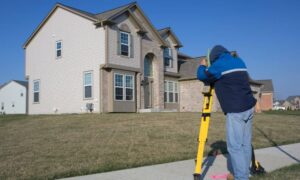
When you’re involved in a commercial real estate transaction, there’s a lot at stake. Whether you’re a buyer, lender, or attorney, making sure everything is legally sound before closing is critical. One of the most important tools in that process is the ALTA survey.
An ALTA survey helps uncover important information about the property—things you can’t always see by just walking the site or reading the deed. If you’re wondering why this type of survey is so commonly requested by banks, title companies, and legal professionals, you’re in the right place. Here are the top five reasons you should never skip an ALTA survey before closing a deal.
What Is an ALTA Survey?
An ALTA survey (short for American Land Title Association survey) is a detailed land survey used mostly in commercial real estate. It follows strict national standards set by ALTA and the National Society of Professional Surveyors (NSPS).
Unlike a basic boundary survey, an ALTA survey includes:
- Exact property lines and corners
- Locations of buildings, fences, and driveways
- Easements (like utility rights-of-way)
- Access points and roads
- Optional “Table A” items like flood zones, zoning classifications, and parking data
This detailed information helps everyone involved in a property transaction understand exactly what’s being bought or financed.
1. Confirms Legal Boundaries and Property Access
The first reason to get an ALTA survey is simple: you need to know exactly where your property begins and ends. Legal boundaries don’t always match fences or landmarks. An ALTA survey ensures your land matches the title description and includes:
- Lot size and dimensions
- Property corners marked on-site
- Driveway and road access points
This information is vital for zoning compliance, construction planning, and legal protection in case of future disputes.
2. Identifies Easements and Encroachments
An easement is a legal right for someone else to use part of your land—like a utility company running lines underground. An encroachment could be a fence or driveway crossing the property line.
An ALTA survey reveals:
- Easements listed in the title report
- Visible and hidden encroachments
- Shared access routes or utilities
This helps buyers avoid future legal battles and ensures the land is usable as intended.
3. Supports Title Insurance Coverage
Title insurance protects buyers and lenders from property ownership issues. But many title companies require an ALTA survey before issuing a full policy.
The survey helps them:
- Confirm that boundaries match legal descriptions
- Verify easements and encroachments
- Identify risks not found in public records
With a proper ALTA survey, you’re more likely to get a comprehensive title policy, giving both buyer and lender peace of mind.
4. Helps Lenders Assess Property Risk
Banks and other lenders want to be sure that the land you’re buying is a safe investment. That means understanding any risks that could lower its value or complicate its use.
Lenders use the ALTA survey to:
- Confirm access to roads and utilities
- Check for zoning conflicts or setbacks
- Validate that the legal and physical descriptions match
This makes the ALTA survey a crucial document in loan underwriting and risk assessment.
5. Prevents Delays and Disputes at Closing
Last-minute surprises during closing can cause serious problems. Missing easements, unclear boundaries, or access issues can delay deals—or even kill them.
An ALTA survey helps:
- Spot problems early during due diligence
- Clarify what’s included in the purchase
- Reduce back-and-forth between attorneys, title companies, and lenders
By getting an ALTA survey upfront, you keep the deal on track and avoid expensive surprises after the fact.
Who Typically Orders the ALTA Survey?
Usually, the buyer or lender orders the survey through a licensed professional offering ALTA survey services to meet title and lender requirements. However, attorneys or title companies may request it during the due diligence period.
The best time to start the survey is early in the transaction—right after the title commitment is issued—so that there’s enough time to resolve any issues before closing.
How Much Does an ALTA Survey Cost?
The cost depends on the size, complexity, and location of the property, as well as how many Table A items are requested.
Typical range:
🟢 $2,000 – $5,000+
Factors that affect the price include:
- Total acreage
- Urban vs rural location
- Time frame for delivery
- Condition of title documents
- Number of Table A add-ons (like zoning, flood zones, or utility locations)
Final Thoughts
An ALTA survey isn’t just a checklist item—it’s a powerful tool that protects your property rights, supports your loan, and makes the transaction process smoother. Whether you’re buying, selling, or financing commercial real estate, investing in a detailed ALTA survey can save you thousands in future legal or construction problems.
When in doubt, order an ALTA survey early in the process and work with a licensed, experienced surveyor who understands local and national requirements.
FAQs
1. Is an ALTA Survey required for every commercial deal?
Not always, but lenders and title companies often require it to approve financing or issue full title coverage.
2. Can a seller provide an old survey?
Yes, but most lenders want a recent ALTA survey that reflects the current condition of the property.
3. What’s included in Table A?
Optional details like zoning, flood zones, utility lines, square footage, and parking counts.
4. How long does it take to complete an ALTA survey?
Usually 1 to 3 weeks, depending on property size and how quickly documents are provided.
5. Who uses the survey results at closing?
Buyers, lenders, title companies, and attorneys all rely on it to verify the legal status of the land.
6. Do residential buyers need an ALTA survey?
Not usually—standard boundary or mortgage surveys are more common for residential transactions.





